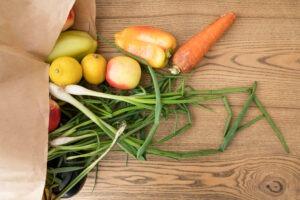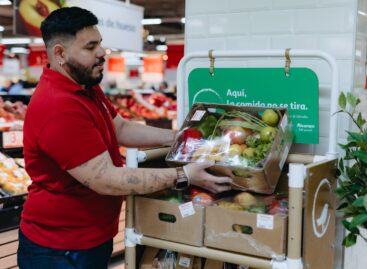We waste 62 kg of food per capita every year
Food waste and overconsumption are an increasingly pressing problem: the surplus produced in households imposes not only an economic but also a serious environmental burden on the planet. Annamária Éva Kertész, an expert at POLCZ, draws attention to the fact that conscious eating and reducing waste are crucial not only for sustainability, but also for a healthier environment for future generations.
 When a stale sandwich, a wilted apple or leftovers from a weekend lunch end up in the trash, few people think about how much damage this simple action causes to the planet in the long term. It not only wastes energy, but also leads to unnecessary expenses and an increase in the greenhouse effect. The Earth has never been so exposed to overconsumption, which is also strongly related to food waste. Below we have collected 4 tips with which we can protect our planet all year round.
When a stale sandwich, a wilted apple or leftovers from a weekend lunch end up in the trash, few people think about how much damage this simple action causes to the planet in the long term. It not only wastes energy, but also leads to unnecessary expenses and an increase in the greenhouse effect. The Earth has never been so exposed to overconsumption, which is also strongly related to food waste. Below we have collected 4 tips with which we can protect our planet all year round.
Globally, a huge amount of food and raw materials end up in the trash every day instead of being consumed or used, but much of this waste could be prevented with more conscious shopping and a sustainable approach, not to mention the economic benefits.
A survey by the National Institute of Food and Agriculture (NÉBIH) shows that an average Hungarian adult produces 62 kg of food waste per year. This is equivalent to the weight of nearly 4,000 blue whales for the entire population, and this shocking figure clearly illustrates the burden that food waste poses on the environment and households.
According to Eurostat data, more than half of food waste, around 54%, is produced by households in the European Union, with the remaining amount being waste generated at other points in the food supply chain. In Hungary, this number is even higher, with households accounting for around 70% of total food waste.
The NÉBIH research also shows that ready-made meals, bakery products, fresh vegetables and fruits, and dairy products account for the vast majority of all food waste (82.5%). Furthermore, 41.6% (25.8 kg/person/year) of all food waste could be avoided – either by buying smaller quantities, only when needed, or by saving leftovers.
There are several tricks to save leftovers: you can make cream soup from dried-out vegetables, hot sandwiches from leftover roast chicken, and bread pudding from stale bread.
Related news
Alcampo Boosts Fight Against Food Waste With ‘Happy Box’
🎧 Hallgasd a cikket: Lejátszás Szünet Folytatás Leállítás Nyelv: Auto…
Read more >Nébih’s 10-year-old Without a Trace program announces mascot design competition
🎧 Hallgasd a cikket: Lejátszás Szünet Folytatás Leállítás Nyelv: Auto…
Read more >Too many gifts, too much food: our holiday excesses are putting a serious strain on the environment
🎧 Hallgasd a cikket: Lejátszás Szünet Folytatás Leállítás Nyelv: Auto…
Read more >Related news
MBH Analysis Center: The Hungarian economy may accelerate again in 2026, but the Iranian war carries serious risks
🎧 Hallgasd a cikket: Lejátszás Szünet Folytatás Leállítás Nyelv: Auto…
Read more >Focus on the domestic fishing sector at SIRHA Budapest
🎧 Hallgasd a cikket: Lejátszás Szünet Folytatás Leállítás Nyelv: Auto…
Read more >









